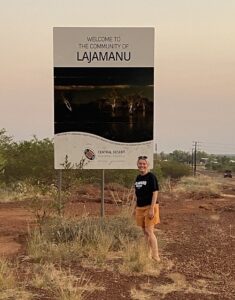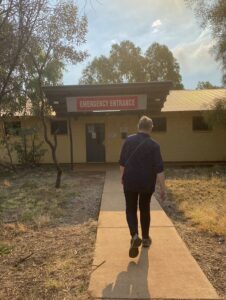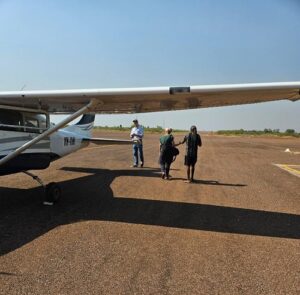
Emma McKenzie
Indigenous Health Scholarship
Flinders University, NT
Doctor of Medicine
Scholarship Awarded 2023-2024
Sponsored by:
Rotary Club of Darwin North
How will I contribute to improving Indigenous health as a qualified medical practitioner or health worker?
As an Indigenous woman, I am especially passionate about improving the health outcomes of Indigenous communities and breaking down the barriers to accessing healthcare services. Growing up in a rural and remote area and being a Registered Nurse has given me a first hand understanding of the challenges faced by Indigenous communities, including limited access to healthcare services and a lack of culturally sensitive care.
As a qualified medical practitioner and health worker, I understand the importance of providing culturally competent care to Indigenous patients. This involves being knowledgeable about Indigenous cultural practices and beliefs, being respectful of these traditions, and ensuring that patients feel comfortable and valued in their interactions with the healthcare system. As an Indigenous woman, I believe that my unique background and perspective can help to bridge the gap between Indigenous communities and the healthcare system, breaking down barriers to accessing care and improving health outcomes.
In order to improve access to healthcare services for Indigenous communities, I will work to establish and maintain positive relationships with local Indigenous organizations and leaders. This will involve engaging with the community to understand their needs and working collaboratively to design and implement solutions that meet those needs. I will also work to advocate for increased funding and resources for Indigenous health initiatives and programs, to ensure that Indigenous communities have access to the same quality of care as other populations.
In addition to providing culturally competent care, I will also focus on addressing the underlying social determinants of health that contribute to the health disparities experienced by Indigenous communities. This will involve working with local communities and organizations to address issues such as poverty, homelessness, poor housing conditions, and limited access to healthy food options. I will also be an advocate for the promotion of healthy lifestyle habits, such as exercise and healthy eating, as well as disease prevention and early intervention initiatives.
As an Indigenous woman, I believe that my presence and visibility in the healthcare system can help to inspire other Indigenous individuals to pursue careers in healthcare. By leading by example, I hope to help break down the barriers that may discourage Indigenous individuals from accessing care and encourage them to take an active role in their own health and well-being.
Finally, I believe that community engagement and empowerment are crucial to improving Indigenous health outcomes. I will work to engage with Indigenous communities and empower them to take an active role in their own health and well-being. This will involve providing education and resources, as well as encouraging and supporting local leadership and community-led initiatives. By empowering Indigenous communities and working in partnership with them, I believe that we can achieve meaningful and lasting improvements in Indigenous health outcomes.
In conclusion, as a qualified medical practitioner or health worker and an Indigenous woman, I am committed to improving Indigenous health and addressing the health disparities faced by Indigenous communities. By providing culturally competent care, addressing underlying social determinants of health, empowering communities to take an active role in their own health, and leading by example, I believe that I can make a meaningful and lasting impact in this area.
Current Progress Report



Spending semester 2 in General Practice, including a 4-week remote placement in Lajamanu, provided invaluable learning opportunities and challenges. Working with a small team in Lajamanu under trying conditions with limited on-site resources expanded my confidence and learning. Weekend travels with the GP to surrounding communities allowed me to see remote health delivery first-hand and the vast scenery this country has to offer.
However, I faced modern frustrations like mobile outages and lack of internet connectivity in my accommodation, making studying quite difficult – I had to revert to textbooks (gasps)! The biggest takeaway was reflecting on my practice in large hospital facilities compared to remote clinics and the general practice setting. This placement gave me a better understanding of the logistics and (often inadequate) services available to support patients when they are discharged back to their communities. Moving forward, I will factor this context into my own practice and discharge planning.
Overall, the semester provided diverse clinical exposure, though not without its frustrations. I am now looking forward to my last year of study!